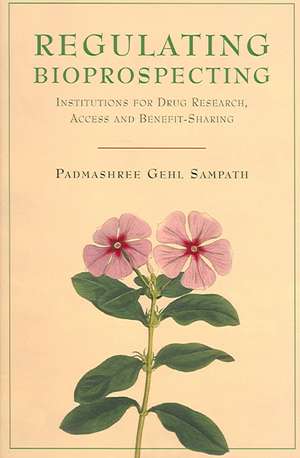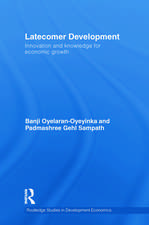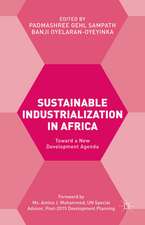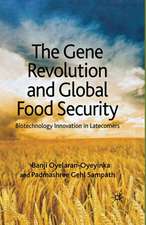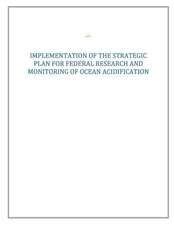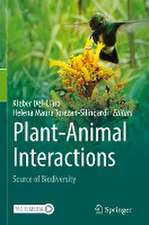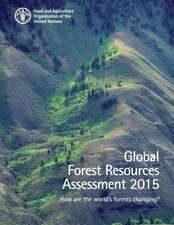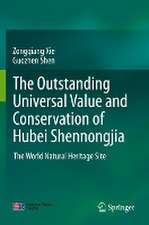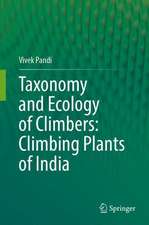Regulating Bioprospecting: Institutions for Drug Research, Access and Benefit Sharing
Autor Padmashree Gehl Sampathen Limba Engleză Paperback – 16 sep 2005
Bioprospecting—the search for useful biochemical compounds and genes in nature—has been the focus of international negotiations for more than a decade. The debate on the terms for access to genetic resources, traditional knowledge, and benefit-sharing is far from settled. This book examines the optimal property rights structures and institutional mechanisms for regulating bioprospecting for drug research. It includes examples of bioprospecting collaborations in several countries. Regulating Bioprospecting is one of the first books to address the contractual complexities of bioprospecting for drug research and is thus a key text for policymakers, practitioners, and scholars in the areas of law, economics, ethnobotany, anthropology, and environmental sciences. "The book offers stimulating insights in a rigorous and accessible manner. It will be of great value for researchers, policymakers, managers, and all those concerned with the protection and sustainable use of biodiversity."—Carlos M. Correa, University of Buenos Aires, Argentina "A welcome contribution to an important but highly polarized debate."—Graham Dutfield, Queen Mary Intellectual Property Research Institute, University of London, UK
Preț: 297.44 lei
Nou
Puncte Express: 446
Preț estimativ în valută:
56.91€ • 59.42$ • 47.10£
56.91€ • 59.42$ • 47.10£
Carte tipărită la comandă
Livrare economică 04-18 aprilie
Preluare comenzi: 021 569.72.76
Specificații
ISBN-13: 9789280811124
ISBN-10: 9280811126
Pagini: 236
Dimensiuni: 152 x 229 x 15 mm
Greutate: 0.41 kg
Editura: Brookings Institution Press
Colecția United Nations University Press
Locul publicării:Japan
ISBN-10: 9280811126
Pagini: 236
Dimensiuni: 152 x 229 x 15 mm
Greutate: 0.41 kg
Editura: Brookings Institution Press
Colecția United Nations University Press
Locul publicării:Japan
Descriere
Bioprospecting—the search for useful biochemical compounds and genes in nature—has been the focus of international negotiations for more than a decade. The debate on the terms for access to genetic resources, traditional knowledge, and benefit-sharing is far from settled. This book examines the optimal property rights structures and institutional mechanisms for regulating bioprospecting for drug research. It includes examples of bioprospecting collaborations in several countries. Regulating Bioprospecting is one of the first books to address the contractual complexities of bioprospecting for drug research and is thus a key text for policymakers, practitioners, and scholars in the areas of law, economics, ethnobotany, anthropology, and environmental sciences. "The book offers stimulating insights in a rigorous and accessible manner. It will be of great value for researchers, policymakers, managers, and all those concerned with the protection and sustainable use of biodiversity."—Carlos M. Correa, University of Buenos Aires, Argentina "A welcome contribution to an important but highly polarized debate."—Graham Dutfield, Queen Mary Intellectual Property Research Institute, University of London, UK
